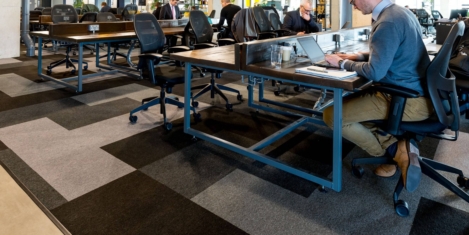November 28, 2018
New report challenges idea that productivity has no link with income
A new IZA World of Labor report published today suggests that workers’ effort may be more responsive to wage incentives and therefore the efficiency costs of progressive labour income taxation larger than previously thought. A fundamental question in economic policy is how labour supply responds to changes in remuneration. The responsiveness of labour supply determines the size of the employment impact and efficiency loss of progressive income taxation for example. The economist Tess Stafford of the University of New South Wales, Australia, summarises a number of recent studies of independent contractors’ labour supply which confirm a key prediction of economic theory: workers work more (in fact, quite a bit more) when earnings are temporarily high.










 The number of “gig economy” professionals working in organisations is growing and this trend is expected to continue, a survey by Korn Ferry has claimed. More than half (60 percent) of HR professionals say that compared to three years ago, gig workers now make up a larger percentage of their professional workforce, and 42 percent say they plan on hiring more contingent workers in the future. The reasons, according to the survey, include cost savings, access to high-calibre talent and ease of managing gig economy professionals. Despite the fact that many gig professionals work remotely, 67 percent of the HR professionals surveyed say they are confident they know what the gig professionals are doing on a day-to-day basis, and 42 percent say these contingent employees are easier to manage than full-time employees. However, according to Jeanne MacDonald, president of Global Talent Solutions for Korn Ferry’s RPO and Professional Search Business, organisations should proceed cautiously and ensure they continue to cultivate in-house talent.
The number of “gig economy” professionals working in organisations is growing and this trend is expected to continue, a survey by Korn Ferry has claimed. More than half (60 percent) of HR professionals say that compared to three years ago, gig workers now make up a larger percentage of their professional workforce, and 42 percent say they plan on hiring more contingent workers in the future. The reasons, according to the survey, include cost savings, access to high-calibre talent and ease of managing gig economy professionals. Despite the fact that many gig professionals work remotely, 67 percent of the HR professionals surveyed say they are confident they know what the gig professionals are doing on a day-to-day basis, and 42 percent say these contingent employees are easier to manage than full-time employees. However, according to Jeanne MacDonald, president of Global Talent Solutions for Korn Ferry’s RPO and Professional Search Business, organisations should proceed cautiously and ensure they continue to cultivate in-house talent.










 Following the deadline for organisations to publish their gender pay this week, it came as little surprise to find that almost
Following the deadline for organisations to publish their gender pay this week, it came as little surprise to find that almost 












August 9, 2018
Is driver behind the widening parental leave gap a lack of rights in the gig economy?
by Sara Bean • Comment, Flexible working, Legal news, News, Workplace